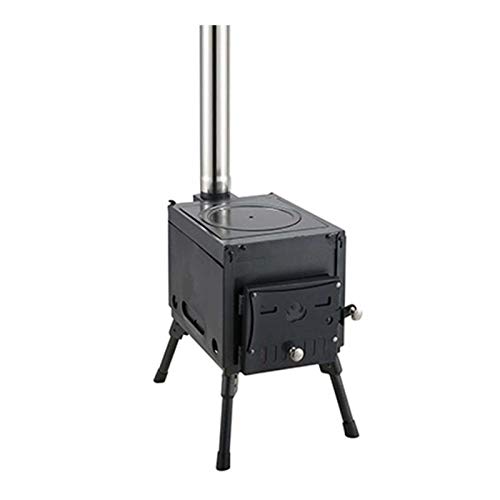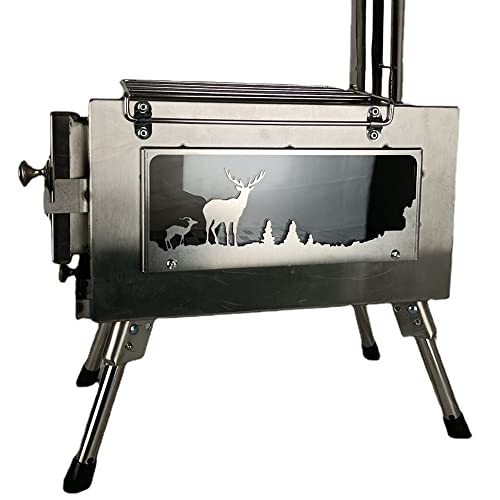10 Mobile Apps That Are The Best For Shed Wood Burner
페이지 정보

본문
 Shed best indoor wood burning stove for sale burning stove (Https://mehmetnuriarslan.com/user/flavorping79/) Burner - Safety Considerations
Shed best indoor wood burning stove for sale burning stove (Https://mehmetnuriarslan.com/user/flavorping79/) Burner - Safety ConsiderationsIf you have a shed, log cabin or other off grid dwelling, you might decide to put a stove in it. But, there are many factors to be considered prior to doing this.
To decrease the cost of fuel and heat loss, it's essential that your cabin or shed be properly insulated. Insulation also reduces dampness and increase the safety of fire.
Size
A shed log burner can be used to heat a summerhouse or a shed. But, contemporary Wood burning stoves it is essential to choose the right stove for your home and ensure that it meets all of the safety requirements. A stove that's too big will not be able to vent properly and could also make the flue smear. A stove that is too large isn't able to heat the room adequately.
First, you'll need to determine the dimensions of the shed and then determine the location of the stove. Once you've identified the spot then you'll need to build an open hearth for the stove to rest on. The hearth must be at least 12mm in thickness and made of a non-combustible product. The safe distance between a single wall flue pipe and any combustible materials is 3x the diameter of the pipe, but this can be reduced by using an insulative panel as shielding.
Once you've created the hearth, then install the stove. You may require an stove pipe, a door or a damper, depending on the type of stove you want to install. You'll also need to install carbon monoxide detectors in your shed or cabin, as these spaces are smaller than homes and can become a source of dangerous CO gas very quickly.
If you're installing a stove inside an outdoor space, then you'll need to install an air liner to ensure safety and to avoid condensation. Flue liners are available at most hardware stores, and they're usually easy to cut to the proper length. Make sure you make use of tin snips or a can opener to remove the lid and bottom of the can, and make sure to bend sharp edges inside.
Safety
Shed wood burning stoves are efficient and comfortable, however they must be installed safely. This includes making sure you are using the correct installation and use of the stove, a carbon monoxide detector as well as a fire extinguisher. To reduce the risk of a mishap, it is important to keep pets and children away from the stove.
It is a good idea to hire a HETAS registered installer to set up your shed stove. They will ensure that the installation process is completed in accordance to the building regulations. This includes the proper distances from walls that are combustible. This can save you from the need for an official building control certificate.
Only burn wood that has been dried kiln and well-seasoned in your shed stove. Do not try to burn treated off-cuts, as this will produce chemicals in the flue gases that could pollute the air and lower the quality of the air. You will also have to make sure that your chimney is of the proper size. A single wall flue is suitable for most sheds, but if you are planning to install a double wall stove in your shed, this will require a bigger chimney.
The smoke from a wood burning stove is a risk, especially for mothers who are expecting or newly born, children and the elderly. Smoke from a wood burning stove could be harmful to those with asthma, COPD, heart disease, and even dogs and cats.
A fire-proofing screen should be used to shield pets and children from hot embers and sparks and it's recommended to keep a log book of fires and an extinguisher in case of an emergency. Also, be wary of using charcoal or gasoline starter fluid near the stove in your shed. These substances are highly flammable and could result in an explosion or flare-up if you make mistakes.
You might live in a smoke-control region. This will impact the type of stove you can put in. You must select a log stove that is approved by DEFRA.
Installation
The addition of a log burner to your shed or summer house is a great idea that will bring you closer to nature in a way that isn't possible with a normal fire in the home. A log burner in your shed or garden can be a fantastic place to gather with family and socialising. It also allows you to enjoy the wonderful outdoors in the comfortable confines of your home.
You'll also need to consider if you live in a smoke-free zone and if there are local laws that could affect your installation. It is also important to consider if you reside in a zone of smoke control and whether there are any local planning regulations that could impact the installation. It is recommended to consult a registered HETAS installer to help you with planning and installing.
If you decide that you'd like to install a wood burner in your shed, the first thing you'll need to do is to determine the size of flue pipe your shed can accommodate. The stove's manufacturer should be able to give you some advice on this. Once you've determined the size of the flue pipe you can begin searching for shed log burners that are suitable for your summer house or shed.
After you have selected the ideal stove for your summerhouse or shed, you will need to prepare the installation area. This includes removing any materials that are flammable and making sure that there is an adequate distance of 1m from the shed to the front edge of the chimney stack. It is also advisable to ensure that the stove is placed at least 2m from the nearest combustible wall, and that any combustible materials within the shed are covered with fire boards or lined with insulation.
The hearth should be made of non-combustible material and at least 12mm in thickness. You can make use of any type of concrete or stone for instance, but be careful not using sand, since it can affect the performance of your stove and result in a fault in the chimney. Also, you'll need twin wall flue pipes, class D air vent and chimney cowl.
Maintenance
Shed wood burners are safe to use provided there is adequate ventilation and a smoke detector installed. If you are planning to install a wood stove in your shed, ensure that the electrical installation has been approved by an electrician and that any flammable material is well away from the stove.
It is important to regularly clean the glass and flue of your stove's log burner in the shed. Use a small amount vinegar to clean the inside of the stove glass. Be careful not to spill vinegar on the burner. You can also clean the best wood burning stoves exterior of the glass log burner with a mild solution made of washing liquid and paper towel.
 Be aware that shed log heaters are made to work with dry-seasoned firewood. The moisture content of the logs must be less than 20 percent. Use a wood moisture meter to determine the moisture content of your logs. Keep your wood in a place that is well ventilated. Keep combustibles like curtains and furniture away from the shed. It is also recommended to have the chimney swept at minimum once per year.
Be aware that shed log heaters are made to work with dry-seasoned firewood. The moisture content of the logs must be less than 20 percent. Use a wood moisture meter to determine the moisture content of your logs. Keep your wood in a place that is well ventilated. Keep combustibles like curtains and furniture away from the shed. It is also recommended to have the chimney swept at minimum once per year.- 이전글5 Killer Quora Questions On Ceramic Chiminea 24.10.02
- 다음글Gay Men Know The Secret Of Great Sex With Watch Free Poker Videos 24.10.02
댓글목록
등록된 댓글이 없습니다.
